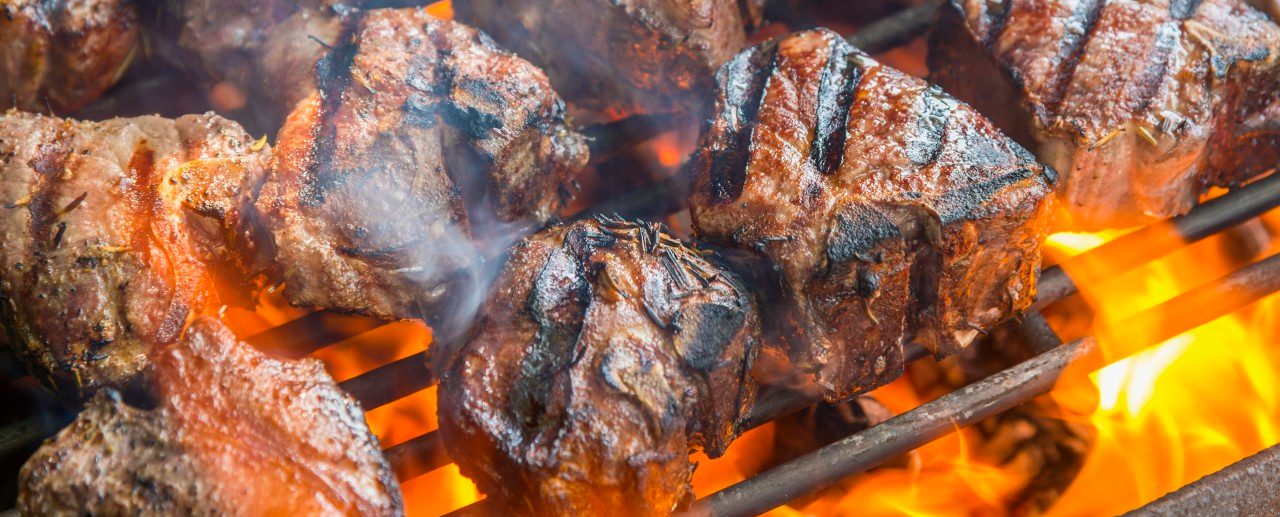Do Certain Foods Cause Cancer?

Your kitchen may be a dangerous place. But, before you start cleaning out your pantry and fridge, look for legitimate science about potential cancer-causing foods.
For people who are conscientious about their diets, it will come as no surprise that some foods can increase their risk of cancer.
There are a lot of lists about cancer-causing foods on websites, some dubious because it’s a difficult subject to study, as people tend to eat a variety of foods. The effects of certain foods can also vary, depending on how much you eat them on a regular basis.
Some lists of troublesome foods are more certain. That’s why it’s important to look for science-based facts from organizations with a history of providing accurate information about cancer prevention and research.
YOU MIGHT ALSO LIKE: Our Cancer Care section
For some perspective, nutritional guidelines developed by the American Cancer Society (ACS) are a good place to start.
“Because people are interested in the relationship that specific foods, nutrients, or lifestyle factors have to specific cancers, research on health behaviors and cancer risk is often reported on the news,” the ACS says. “No one study, however, provides the last word on any subject, and single news reports may put too much emphasis on what appear to be contradictory or conflicting results.”
What causes cancer?
The ACS says there is enough evidence to point the finger at certain foods and beverages. Alcohol, for instance, raises the risk of several types of cancer.
Studies have linked eating large amounts of processed meat to colorectal and stomach cancers. One prominent theory about carcinogenic foods connects the risk to nitrites, which are added to lunchmeats and other meat products to preserve color and prevent bacterial growth.
Research also suggests that the way we prepare meats may increase our risk of cancer. That includes frying, broiling, and grilling, which form chemicals at high heat that may increase cancer risk.
The ACS says that, while there is no convincing evidence residues of pesticides and herbicides on fruits and vegetables increase your risk of cancer, it’s better to be safe and thoroughly wash produce before eating it.
“Studies in other countries link diets that contain large amounts of foods preserved by salting and pickling with an increased risk of stomach, nasopharyngeal, and throat cancer,” according to the ACS. “No evidence suggests that moderate levels of salt used in cooking or in flavoring foods affect cancer risk.”
Other potential cancer-causing foods
Sugar increases calorie intake without providing any of the nutrients that reduce cancer risk. By promoting obesity and elevating insulin levels, high sugar intake may indirectly increase cancer risk.
There are high levels of salt and sugar in many of the foods we grab from supermarket shelves. Read nutrition labels, and keep your intake of salt and sugar to at least moderate levels.
You’ve probably noticed that many foods are now marketed as being trans-fat free. Some of that is misleading – because some foods never had them to begin with. But trans fats, whose potential risks lie in the hydrogenation that keeps them solid at room temperature, raise blood cholesterol levels. Their connection to cancer risk has not been determined, but the ACS nonetheless advises you to avoid foods that contain them.
Diets high in red meat have been linked to colon cancer. Dietitians suggest eating no more than 18 ounces of red meat per week.
How to prevent cancer
The American Institute for Cancer Research (AICR) has conducted surveys periodically since 2001 to document – and try to correct – misconceptions Americans have about food and cancer and to promote science-based evidence that dietary factors can go far to help prevent malignancies.
The AICR’s most recent Cancer Risk Awareness Survey found fewer than half of Americans polled recognize that alcohol, processed meat, high amounts of red meat, and low amounts of fruits and vegetables have clear links to cancer development. Only one in two Americans know that obesity is a cause of cancer.
“We know a lot of healthy people do get cancer and, sometimes, it’s easier to worry about genes or uncontrollable things rather than your everyday choices. But the research says that being physically active, maintaining a healthy weight, and eating a plant-based diet has the potential to prevent hundreds of thousands of cancer cases each year,” said Alice Bender, MS, RDN, who heads AICR Nutrition Programs.
“It’s a powerful message.
YOU MIGHT ALSO LIKE: Dietary Guidelines for Americans Through 2025
Updated:
February 24, 2022
Reviewed By:
Christopher Nystuen, MD, MBA and Janet O'Dell, RN